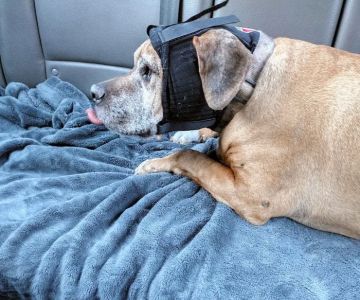Are Veterinary Records Confidential? Understanding Your Pet's Privacy Rights
As pet owners, we all want what's best for our furry companions, and part of that is ensuring their health information is kept private and protected. But when it comes to veterinary care, a common question arises: are veterinary records confidential? In this article, I'll walk you through the details surrounding the confidentiality of veterinary records, explaining the laws, protections, and your rights as a pet owner. Whether you're concerned about who can access your pet's records or simply want to understand the legalities of veterinary privacy, this article will provide clarity on the topic.
1. What Are Veterinary Records?
Veterinary records are documents that contain detailed information about your pet's medical history, including treatments, surgeries, vaccinations, diagnoses, and medications. Just like human medical records, these records are essential for tracking your pet's health and ensuring continuity of care. Veterinary records are often created and stored by the veterinary clinic or hospital where your pet receives treatment. They can include physical exams, lab results, and notes from your vet regarding your pet's health condition and treatment plan.
1.1 Types of Information in Veterinary Records
Veterinary records typically include the following types of information:
- Medical history: Past illnesses, surgeries, and treatments your pet has undergone.
- Vaccination history: Dates and types of vaccinations your pet has received.
- Diagnostic results: Lab tests, imaging reports, and other diagnostic information.
- Treatment plans: Any ongoing or future care, including medications, follow-up visits, and procedures.
- Notes from your veterinarian: Observations and advice given by the vet during appointments.
2. Are Veterinary Records Confidential?
The short answer is yes: veterinary records are generally considered confidential. Like human medical records, they are protected by laws and regulations designed to maintain privacy. However, the level of protection and the rules regarding access to these records can vary depending on the region and specific laws in place.
2.1 Legal Protections for Veterinary Records
In many countries, including the United States, veterinary records are protected by privacy laws. While they are not covered under the same privacy laws as human medical records (like HIPAA in the U.S.), they are still considered private property of the pet owner. In the U.S., the Health Insurance Portability and Accountability Act (HIPAA) applies to human health records, but veterinary records are often protected under state-level regulations or other local privacy laws.
2.2 Who Can Access Veterinary Records?
Generally, only you and authorized veterinary professionals can access your pet's veterinary records. However, there are situations where these records may be shared with third parties. For example, if you transfer your pet’s care to a new veterinarian or clinic, the records may be shared with their staff. Additionally, you can authorize specific individuals or organizations (like insurance companies or researchers) to access your pet's records, but this typically requires your consent.
2.3 When Can Veterinary Records Be Released Without Consent?
In certain circumstances, veterinary records may be released without the pet owner's explicit consent. These situations typically involve legal requirements, such as:
- Subpoenas or court orders: If a court requires the release of your pet's records as part of legal proceedings.
- Animal abuse investigations: If authorities suspect animal cruelty or neglect, records may be shared with law enforcement.
- Public health concerns: In rare cases, if there is an outbreak of a disease that could affect humans or other animals, records may be shared with public health agencies.
3. How to Protect Your Pet’s Privacy
As a pet owner, there are several steps you can take to protect your pet’s privacy and ensure that their veterinary records are kept confidential:
3.1 Understand Your Rights as a Pet Owner
First and foremost, it's important to understand your rights regarding your pet’s veterinary records. In most cases, you have the right to access and control the release of your pet's records. This includes the ability to request a copy of the records and to grant or deny permission for others to access them.
3.2 Ensure Secure Handling of Records
When choosing a veterinary clinic, it’s crucial to ensure that the clinic has secure systems in place for handling and storing veterinary records. Ask about their privacy practices, including how they protect your pet’s information and who has access to it. Many clinics now store records electronically, making it easier to track and safeguard sensitive data.
3.3 Be Cautious with Shared Information
If you’re ever asked to share your pet’s veterinary records with an external party, be sure to read the consent form carefully. Ensure that you are comfortable with who will have access to the records and how they will be used. For example, if you’re applying for pet insurance or participating in a research study, you may need to share your pet’s medical history, but always verify the legitimacy of the request before consenting.
4. What to Do if Your Pet’s Records Are Compromised
If you believe that your pet's veterinary records have been accessed or shared without your consent, it's essential to take action promptly. Contact the veterinary clinic or hospital where the records were stored and inquire about the situation. If necessary, you can also file a complaint with local regulatory authorities or professional organizations, such as the American Veterinary Medical Association (AVMA), to address any privacy breaches.
5. Conclusion
In conclusion, veterinary records are considered confidential and are protected by a combination of legal and ethical safeguards. However, as a pet owner, it’s important to understand your rights and responsibilities when it comes to managing your pet’s medical information. By choosing a reputable clinic, staying informed, and taking necessary precautions, you can ensure that your pet’s privacy is respected and their records are kept secure. If you have any concerns or questions about your pet’s veterinary records, don’t hesitate to ask your veterinarian or seek professional advice.











